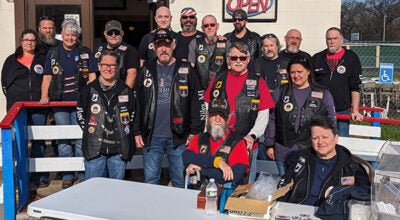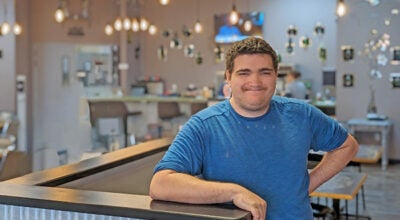Eliason back in court
Published 2:54 pm Thursday, December 8, 2011

Dakotah Eliason, a Niles teenager sentenced to life in prison, could be granted a new trial pending the findings of an evidentiary hearing that began Thursday.
Dakotah Eliason appeared in the South Berrien County Courthouse Thursday for the first time since he was sentenced to life in prison without parole.
The Niles teenager, found guilty of shooting his grandfather in his sleep last year, is hoping to be granted a new trial. Thursday began an evidentiary hearing, ordered by the Michigan Court of Appeals, to determine if Eliason received ineffective representation from his former lawyer, Lanny Fisher, during his trial in August.
Eliason, now 16, will have to wait at least two months to find out if he will be tried again, as Judge Scott Schofield adjourned the hearing based on an issue regarding documents sealed from the public.
The documents are an evaluation of Eliason done by Dr. Jim Henry, a professor and director of the Child Trauma Assessment Center at Western Michigan University, to determine why Eliason showed little emotion and remorse after the incident.
Henry was called as a witness by appellate attorney Jonathan Sacks, who is now representing Eliason.
The evaluation is sealed, meaning it’s not available to the public. The Court of Appeals indicated it would allow Assistant Berrien County Prosecutor Beth Wild to reference and quote details of the assessment, but Wild questioned if that would violate the seal since the hearing is open to the public.
Judge Schofield agreed to adjourn the hearing until Feb. 2 to get clarification from the Court of Appeals.
Fisher, who signed an affidavit indicating he should have called another expert witness during the trial, was Sacks’ first witness at the hearing.
Fisher admitted he hadn’t thought to call an expert witness to explain Eliason’s post-incident lack of remorse and emotion. He also stated he had no strategic reason for not calling an expert.
During cross examination, Wild asked questions attempting to show that Fisher was thorough in his preparation of defense.
Fisher admitted that attorney Tat Parrish, from whom he sought advice about how to handle the case, didn’t recommend calling another expert witness. Fisher also testified he didn’t know if calling another witness would have helped or hurt his case.
Under redirect questioning from Sacks, Fisher said Wild’s questioning didn’t change his statement that he should have called another expert witness.
Earlier in the hearing, the court addressed the question whether the jury for Eliason’s trial could see the teen’s ankle shackles during the proceedings. A questionnaire sent to all jurors revealed 13 of the jurors didn’t see the defendant’s shackles, settling the issue. One juror didn’t respond to the survey.
Cruel and unusual punishment?
Eliason’s case could be further thrust into the national spotlight given the U.S. Supreme Court last month agreed to decide the constitutionality of sentencing juveniles under the age of 14 to life in prison without parole. The court will hear two Alabama cases and decide if a life sentence for juveniles violates the Eighth Amendment regarding cruel and unusual punishment.
Before Eliason’s sentencing last October, Fisher filed a brief claiming that a life sentence was cruel and unusual punishment, but Schofield denied the motion.
A story about juvenile life sentences, set to run in The New Yorker magazine later this month, will feature the Eliason case. It will feature interviews with Eliason and Fisher.
“All I can do is hope and pray”
Dakotah’s father, Steve Eliason, said it’s been a difficult year for his family.
“The hardest thing is being a parent and being helpless,” he said. “I can’t tuck him in at night. I can’t teach him how to drive …, He’s not the only one serving life in prison.”
But Steve said his son has done some “positive” things while in prison, including earning his GED and volunteering to help tutor other inmates.
Regarding the likelihood of his son getting a new trial, Steve said he is trying to remain hopeful.
“I’d be lying if I said I have all kinds of faith,” he said. “I just have to wait and see. All I can do is hope and pray.”
Steve said the only people to know why Dakotah committed the crime and why he showed little emotion thereafter are “the Lord and Dr. Henry,” who will take the stand when the hearing continues in February.






